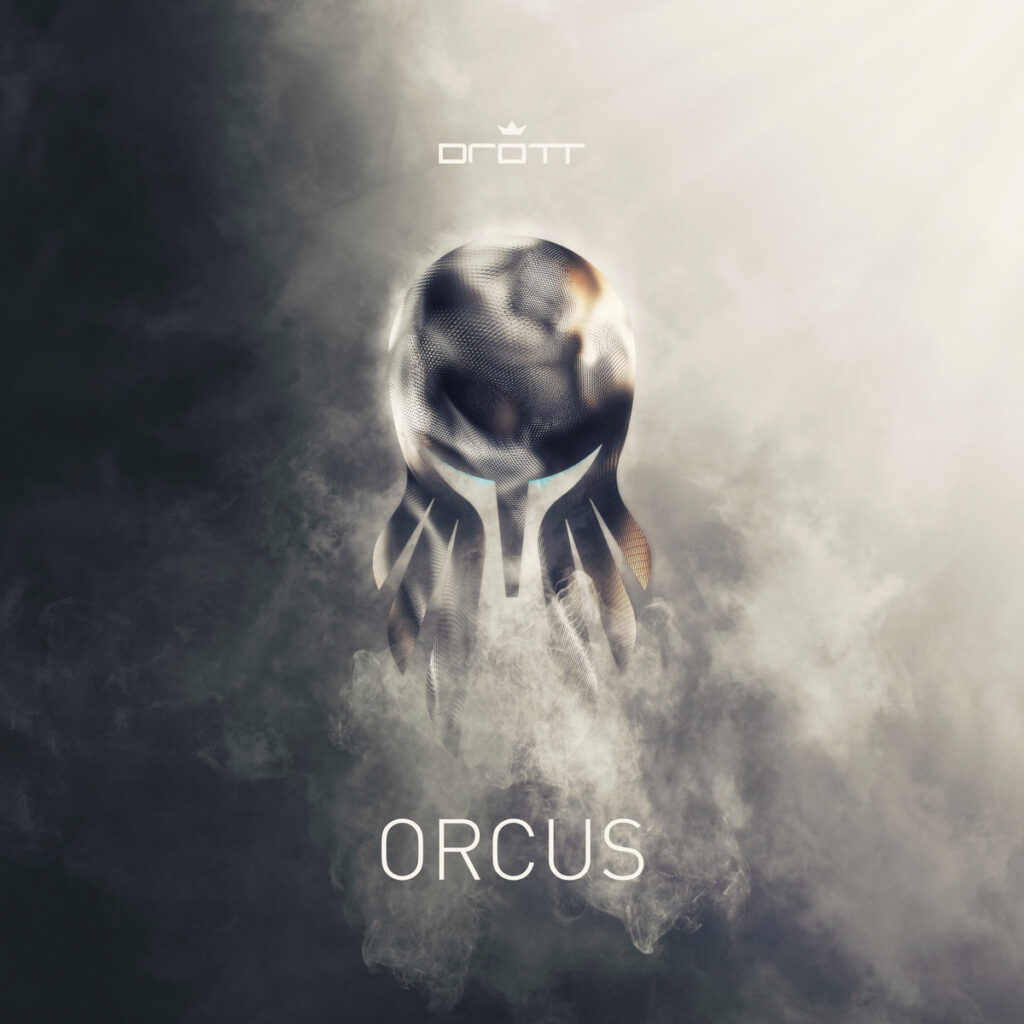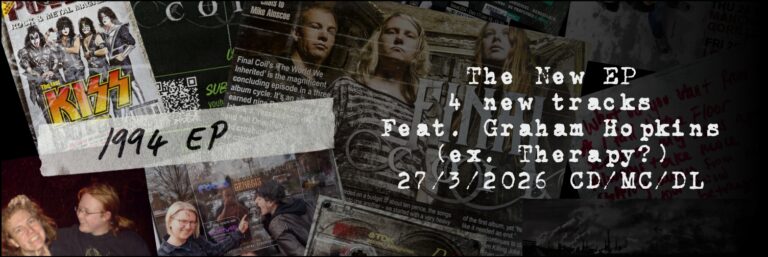
I come to DROTT a stranger, although the Norwegian three-piece features members of Ulver (Ivar Thormodsaeter) and Enslaved (Arve Isdal), which should be enough to intrigue most people. Joined by Matias Monsen, the band carve out remarkable soundscapes that defy genre and, instead, exist in a cinematic realm. The result is a strikingly original album that bears comparison to both Ulver and Enslaved without sounding like either.
The experience of DROTT’s members is clear from the outset. Where most would be tempted to expand these evocative pieces at the expense of the album’s pacing, DROTT are content to allow the music to ebb and flow, with four of the album’s ten tracks sitting comfortably under three minutes in length. Such restraint is rare, and it plays very much in the band’s favour, always leaving the listener wanting more. Opener, The Lure, is very much a case in point. With haunting melodies and gently picked guitar, it draws the listener in (exactly as intended) and then segues neatly into the crunchy Cerdroia. With a mix of lush instrumentation reminiscent of Hans Zimmer, underpinned by tough, almost industrial percussion and palm muted guitars, Cerdroia is a dynamic piece that haunts the senses. The epic-length Katabasis (one of only two tracks to exceed the five-minute mark) makes good use of its run time, the band employing stabbing guitars and dense strings to carve out a portrait of empty expanses and emotional turmoil. Shifting tone at around the three-minute mark to allow for vocals to seep in (albeit awash in layers of hazy reverb), Katabasis arguably becomes the spiritual successor to Kevin Shields’ mix of Loveless, the band revelling in wiry post-punk guitars as they reach for a cathartic and explosive climax. A shorter track, The Strait sees the band sheer off on a jazz tangent, eccentric, shimmering guitar riffs laid over an awkward, constantly shifting beat. It segues directly into the darker meanderings of Psychopomp, a harrowing piece of music that opens in a maze of icy strings and drone, before expanding into something more crystalline, albeit still with a heart of darkness.
With the discomforting sounds of Psychopomp still ringing in you rears, the bizarrely pastoral By The Lunar Lake may be one of only a handful of songs ever written that employs whistling without sounding ridiculous. Reminiscent of Ennio Morricone’s beautifully rendered Western scores, it’s a very different piece of music that offers something of a reset, only for the hellish darkness to descend once more with The Marauders. A short piece built around improvisational sounds and layers of drone, The Marauders edges into a crushing, proto-industrial hellscape and it comes as no small relief when it finally gives way to the Floydian beauty of Grey Gull. With its atypical percussion and increasingly agitated guitar work, Arch Of Gloom is a fascinating, constantly evolving piece that shares more in common with the exploratory works of the jazz greats than contemporary post rock. A truly mesmerising track, there’s a sense that band and audience are exploring the music together, and there’s a remarkable freshness to the piece that is irresistible. It leaves the title track, Orcus to bring the album to a heady conclusion. Although it wrongfoots the listener by emerging as a piece lost in echoing noise and eerie drone, it soon expands into a brilliantly percussive piece where grinding guitars course through the reverb to create something of real depth and melody.
Orca is a work of art masquerading as an album. Beautifully conceived and produced, it summons the listener to far-flung worlds not as a guide, but as a co-explorer; the sense being that the listener is hearing each piece as it unfolded in the studio rather than some masterplan. There is beauty here, and darkness, and each piece is rendered with stunning clarity. An evocative and emotional journey, Orcus is a bold excursion to an undiscovered country, and one that you’ll want to take time and time again. Utterly wonderful. 9.5/10



